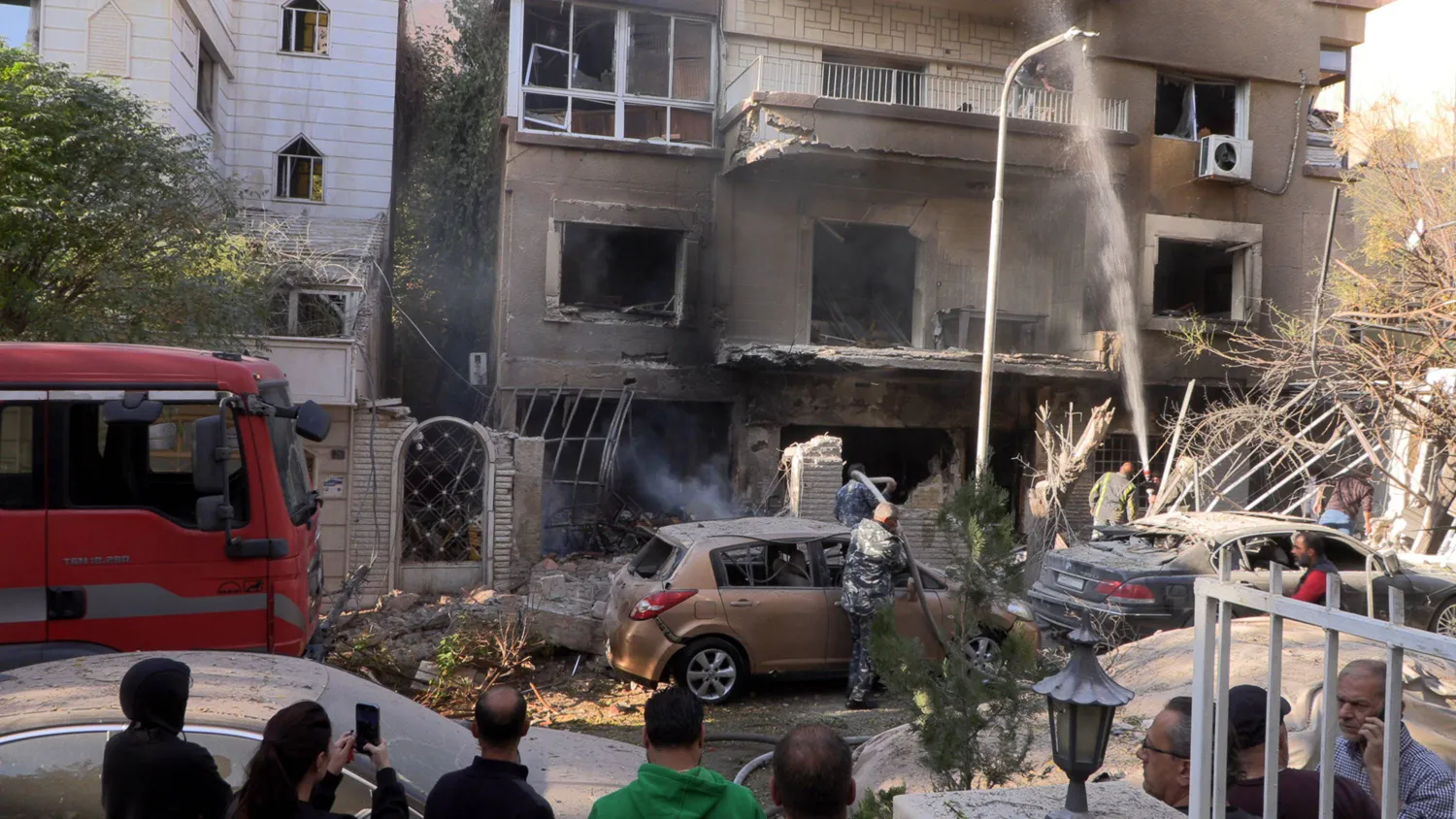Nine members of the Palestinian Islamic Jihad militant group who were killed in Israeli airstrikes in Damascus were buried Monday in the Syrian capital.
Women in the crowd wept as the dead were transported to the Yarmouk cemetery in the Palestinian refugee camp in Damascus. Some held images of slain Hezbollah chief Hassan Nasrallah.
Israeli strikes on Thursday targeted two buildings with the offices of the Palestinian Islamic Jihad, killing 15 people, including Syrian civilians, and wounding 20 others, officials said.
The funeral on Monday was held for the nine Islamic Jihad members, including two high-ranking officials — commander Abdel Aziz Saeed Minawi and Rasmi Youssef Abu Issa, who was in charge of the group's Arab affairs.
The wife of Ali Kabalan, a 44-year-old fighter who was killed Thursday, told The Associated Press that while the loss was unbearable, she and their five children were “proud” that he died “a martyr for the cause of Palestine’s liberation.”
The Israeli military claimed the strikes dealt significant damage to its group’s leadership. Israel has accused the Islamic Jihad, alongside Hamas, of coordinating the Oct. 7 attacks on southern Israel that ignited the ongoing war.
Israel has carried out hundreds of airstrikes in Syria targeting members of Lebanon’s Hezbollah and officials from Iranian-backed groups.
9 Members of Palestinian Islamic Jihad Killed in Israeli Strikes are Buried in Damascus

Syrian security forces and civilians inspect the scene of an airstrike in the Al-Mazzeh neighborhood of Damascus, Syria, 14 November 2024. EPA/STRINGER

9 Members of Palestinian Islamic Jihad Killed in Israeli Strikes are Buried in Damascus

Syrian security forces and civilians inspect the scene of an airstrike in the Al-Mazzeh neighborhood of Damascus, Syria, 14 November 2024. EPA/STRINGER
لم تشترك بعد
انشئ حساباً خاصاً بك لتحصل على أخبار مخصصة لك ولتتمتع بخاصية حفظ المقالات وتتلقى نشراتنا البريدية المتنوعة







